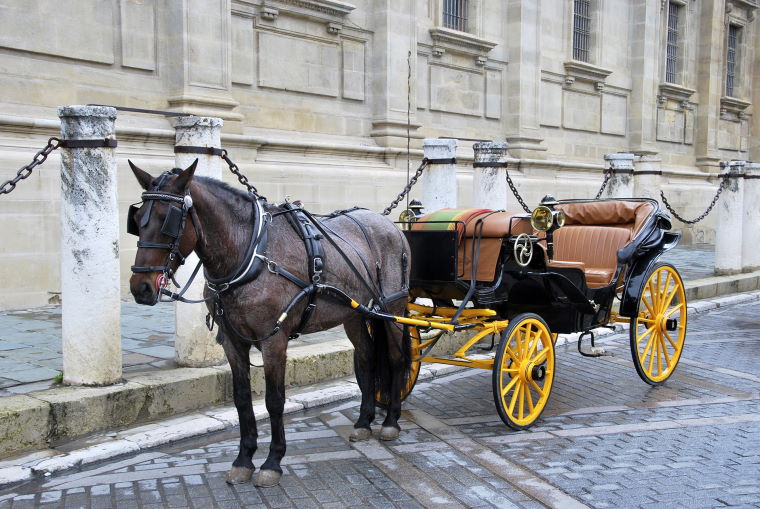What do Horsepower & Brake Horsepower Mean?
Bradley Jando | Monday 26th July 2021 12:21pm

You’ll most usually see car engines referred to in terms of ‘horsepower’ or otherwise ‘brake horsepower’. You can’t walk ten feet at a car show without overhearing endless comparisons and boasts about the 0-60 stats of a car as well as the engine’s horsepower, but what does it actually mean? And, perhaps more interestingly, where does the phrase come from?
The invention of steam-powered horsepower
Until the invention of the steam engine, humans had recruited horses (and other farm animals) for thousands of years to do the really hard work that needed doing. Things like speedy transportation, heavy lifting, ploughing, hauling, and so on. These are all things that could have been done manually by workers, but were done much more effectively by, say, horses or ox.
The primary invention of machines like mills, water screws, and so on, meant that certain specialised tasks could be done far more efficiently, but it still took many people lots of physical effort to work those machines.
When animals started to be domesticated, a task that would take five men a day could, quite soon, be done with just one man and a horse in half a day.
Fundamentally, the domestication of animals for work was as much a technological leap as any other. So it’s no surprise that eventually it needed to be surpassed by something more efficient.
That more efficient invention was James Watt’s steam engine. But, by the late 18th century, the use of horses for hard labour was so ingrained in workers’ and managers’ minds that it was hard for many to conceive of something that could work better. So James Watt created the ‘horsepower’ as a unit of measurement to be able to compare how much work an engine could do as opposed to a horse.
How is horsepower measured?

Watt defined 1 horsepower as ‘the amount of work required from a horse to pull a 150lb weight out of a hole that was 220 feet deep.’ Which are some fairly strange numbers to settle on but - in essence - the aim is to compare how much force a thing is able to exert over time. Put simply:
- How much can you move?
- How far can you move it?
- How quickly can you move it (or for how long can you continue to move it)?
In more digestible, metric, terms - the amount of work (energy exerted) of 1 horsepower is equivalent to the ability to pull a 75kg weight upwards 1 meter in 1 second.
The actual amount of weight that a horse could lift or pull at one moment is much higher than 75kg – and obviously depends on the size of the horse and whether it’s had its Weetabix that morning – but a horse pulling a 500kg weight will get tired much sooner and need to stop. In order to get a full day’s work, you’ll need more horses.
This then made it much easier for factory managers, mine operators, and a host of other business people to compare how much more work they could get done if they used a steam engine as opposed to their current force of horses.
So there we have the horsepower of an engine. In theory, this means that a roughly 80hp Vauxhall Corsa engine could lift roughly 80 average-sized people 1m off the ground in 1 second!
Horsepower & brake horsepower

What is brake horsepower?
Brake horsepower is a measurement of how much ‘useful’ power an engine can produce. By taking the total power of an engine and allowing for the power lost through friction (in the engine’s mechanical parts, gearbox, water pump, and generator) you can calculate the brake horsepower.
This kind of horsepower is a measure of how much an engine can output with all of the necessary loads applied to it. These loads are things like the alternator running faster to power air conditioning as well as how much force the engine is able to exert in excess of the weight of the vehicle.
That’s because a certain engine may be able to output a certain amount of power in theory, but that doesn’t necessarily reflect how fast a car will go if the engine’s put in a particularly heavy car with poor aerodynamics. Brake Horsepower, then, is a useful comparison of how powerful an engine will be when accounting for the basic loads you’d expect.
Brake horsepower check
It is important to check your vehicle’s BHP as it serves as an indication of the engine’s — and wider car’s — health. If a vehicle is not retaining its BHP properly, there could be something wrong with the engine.
You can check your brake horsepower via the registration plate against a database. All you have to do is visit your dealership to get your results and be guided on the appropriate action to take should something be amiss.
What’s more, if your car’s engine isn’t feeling as strong as it used to, bring it into your local Kwik Fit centre for an inspection - it may need a gasket replacement or something as simple as an engine treatment.
Any facts, figures and prices shown in our blog articles are correct at time of publication.
Featured Articles
Is it Illegal to Drive With One Headlight?
Saturday 19th July 2025
Wondering if it’s illegal to drive with one headlight? Learn about the safety risks and penalties of illegal blown bulbs and why you should fix them promptly.
Air Con in EVs & Hybrids: Experts Answer Your Questions
Monday 30th June 2025
Does air con drain EV batteries? Can you use the air con while charging an electric car? Find out the answers to these questions & more from Kwik Fit’s experts.
Why Is Your Car Making a Noise? Fixes & Tips
Friday 13th June 2025
When your car starts making unexpected noises, it can certainly be quite disconcerting; it may be nothing to worry about, but here’s what you need to know.









